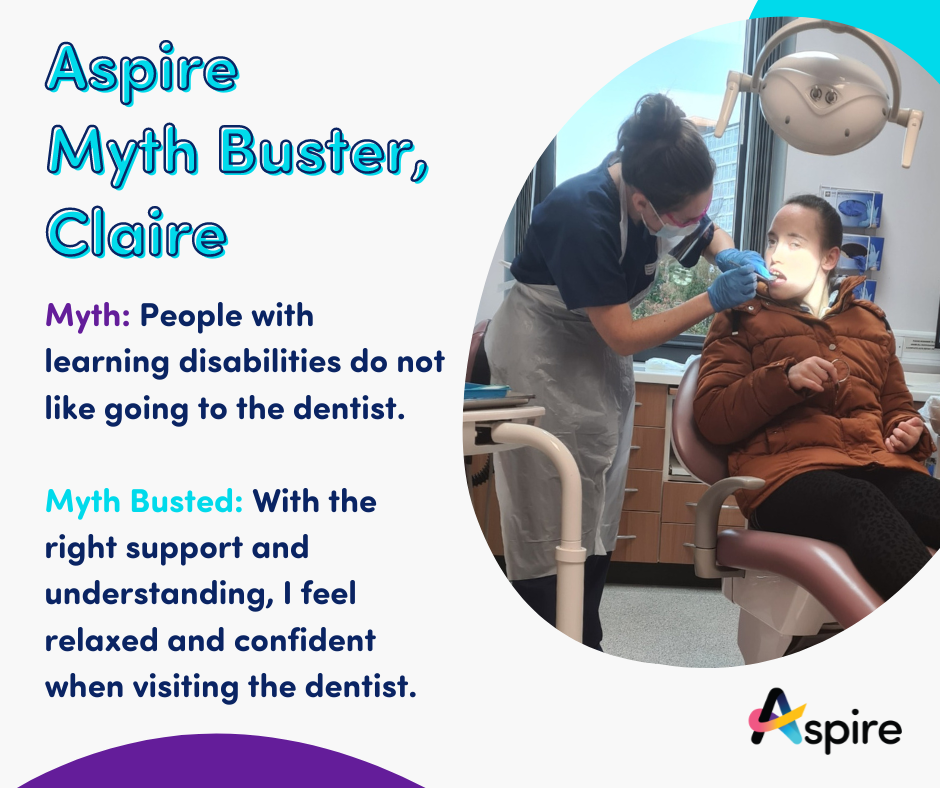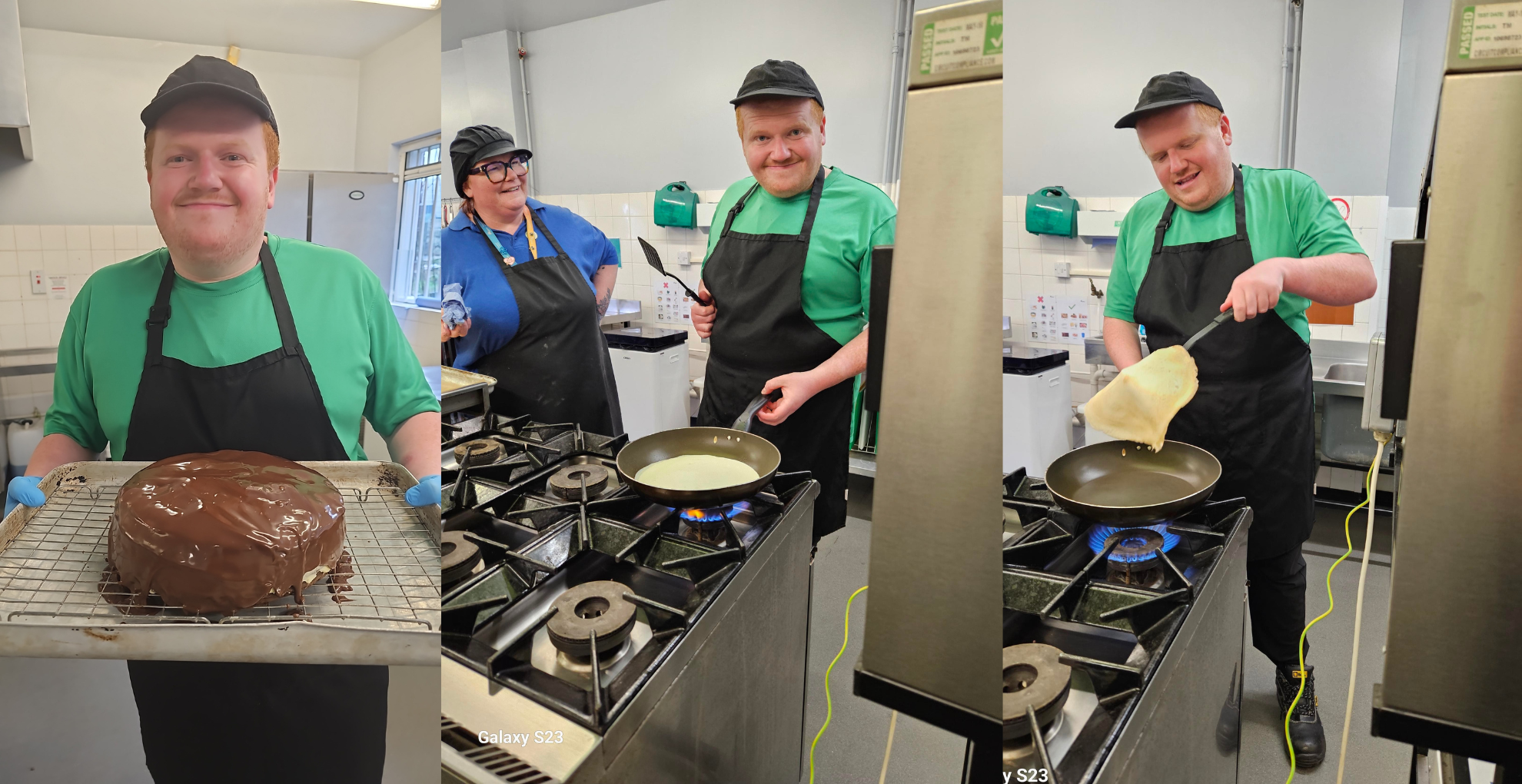Visiting the dentist is very important to maintain good oral hygiene, however going to the dentist isn’t always a positive experience, particularly if you have a learning disability or Autism.
If you are an adult with a learning disability or autism, you may find going to the dentist stressful and daunting, this may be due to it being an unfamiliar environment, sensory issues or disliking people invading your personal space.
Laynie, an Aspire Support Worker, has given her top tips on how to improve the dentist experience and talks about Claire, a lady we support, journey of visiting the dentist.
Why is it important to visit the dentist?
Visiting the dentist regularly is important, as it is essential to keep your teeth and gums healthy. A dentist check-up usually happens between every 6-12 months, going to your dentist appointment allows your dentist to see if you have any dental problems and can help them to maintain your lovely smile and keep your mouth healthy. If you do not attend your dentist appointment, it could cause dental hygiene issues and may make the procedure more difficult in the future.
Claire’s Journey of visiting the dentist.

Claire lives in Aspires Supported Living and is supported by Aspire Support Workers, Julie and Laynie.
“For many years, Claire was very anxious about visiting the dentist and on some occasions, refused to go. However, after consistently using total communication methods, showing Claire photo’s of the dentist and the procedures, driving past the dentist and eventually going inside, this helped Claire to feel relaxed and familiar with her surroundings.
At first, Claire didn’t feel comfortable sitting in the dentist chair, so I sat in the chair to show Claire that it was ok. After a while, Claire felt safe to sit in the chair. Once the dentist, asked Claire to open her mouth, she refused. I asked the dentist if we could use a toothbrush, to encourage Claire to open her mouth as this was an item, she was familiar with. It worked a treat!
Claire has had minor work done to her teeth and is relaxed and calm each time we visit.
I think it is important for Claire to feel safe and to know there is a reward after visiting the dentist. We ask Claire where she would like to go after the dentist, more often than not, Claire chooses McDonalds. Who wouldn’t?!”
Laynie, Claire’s Support Worker has shared tips of how to improve your experience at the dentist.
- Book the first appointment of the day so you’re not waiting around, or book the last appointment of the day, so you can go out before your dentist appointment and distract yourself. This will help to reduce anxieties.
- Watch videos, so you know what to expect on the day. Myself and Julie, used total communication aids with Claire to explain what will happen when she visits the dentist and together we watched YouTube videos, so that she could better understand what happens at the dentist.
- It is important to ensure you feel comfortable and relaxed when visiting the dentist, it might be useful for yourself or your carer to give the dentist as much information as they can, about what you like and don’t like, as this will help them prepare for your visit and help you to feel relaxed on the day of your appointment. Such as, if you do not like bright lights, they will dim them and take this into consideration.
- Ask the dentist to be reassuring and use countdowns, as “we’re just lowering your chair”, “10 seconds left”, or “well done, you’re doing so well”.
- Ask the dentist to reduce the amount of noise and medical equipment in the room.
- Do your research, find a dentist that can use sign language and is autism and learning disability friendly.
- Ask if you can visit the dentist before the appointment, to make yourself familiar with the new surroundings.
- If you need any treatments, a dentist may use noisy equipment. It is a good idea to take some headphones or ear blockers so that you can block out the noise and listen to something you enjoy.
*A fun fact about smiling is that it can instantly make another person feel better about themselves, improve confidence and boost self-esteem.


